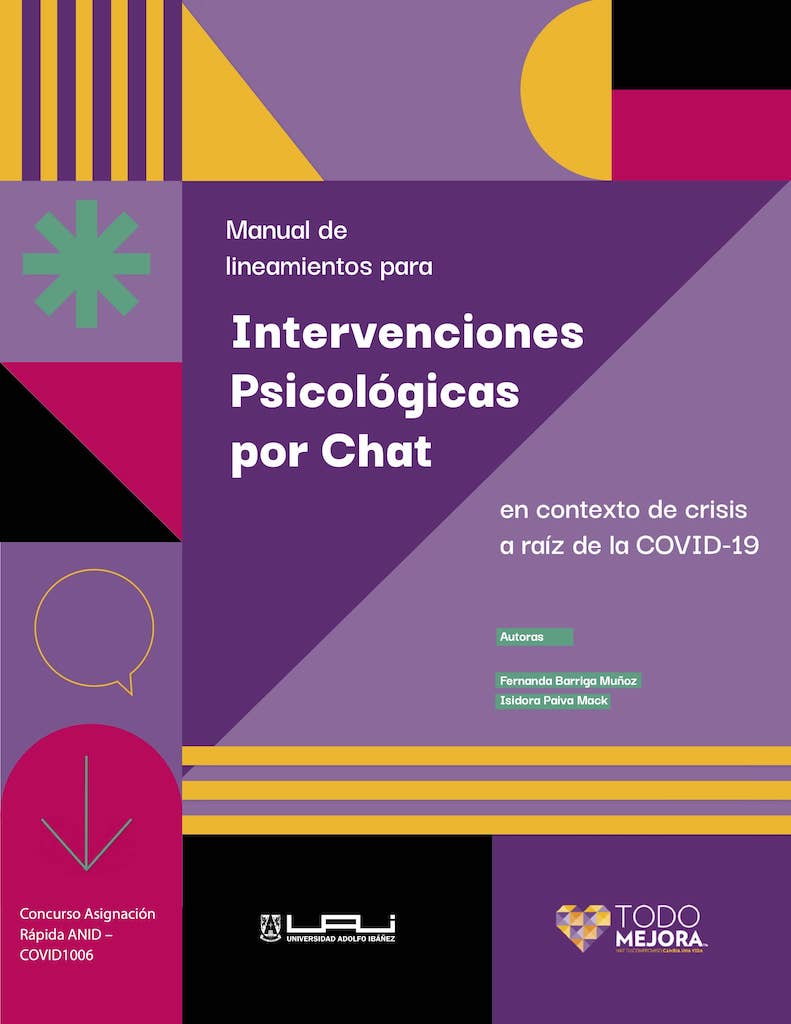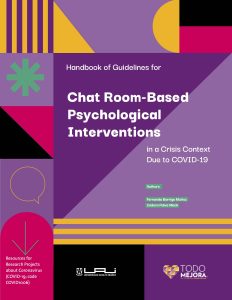
El presente Manual tiene por objeto reunir en un mismo trabajo las recomendaciones y componentes principales de las líneas de ayuda por chat para adolescentes, desde su dimensión de intervención en salud mental ofrecida desde el mundo virtual.

Handbook of Guidelines for Chat Room-Based Psychological Interventions in a Crisis Context Due to COVID-19
The purpose of this handbook is to bring together the main recommendations and components of the mental health intervention offered by chat helplines for adolescents. This is in accordance with the most recent developments and international research, as well as the findings of the ANID research project entitled ”Identifying the Effects of the COVID-19 Pandemic on the Mental Health of Chile’s Adolescent Population“.
Both the aforementioned research and the contents of this handbook are based on the Safe Hour Program (PHS, Programa Hora Segura) in Chile, a chat helpline created in 2014 with the central aim of providing online emotional support and guidance by chat to LGBTIQA+ children, adolescents and youth under the age of 30 from a culturally competent perspective in topics related to sexual affective orientations, identities, gender expressions and sex characteristics (SOGIESC).
The ANID research was conducted in January-December 2021 through an interdisciplinary process that combined social sciences, linguistics and data science in order to propose an automatic analysis strategy for a pilot sample of conversations from the Hora Segura Program in Chile held in 2018, 2019 and 2020. Based on the analysis of these conversations, inferences were made about adolescent mental health -as an alternative to expensive studies with self-report surveys- and also about the work of the chat helpline’s counselors in terms of the mental health of its users.
This handbook is aimed at an audience specializing in chat helplines, as well as professionals working in the field of remote mental health interventions in Latin America and/or Spanish-speaking countries, mental health professionals in general, students in related programs and people interested in academy and research in topics associated with the use of technologies for adolescent mental health work with an operational focus.



